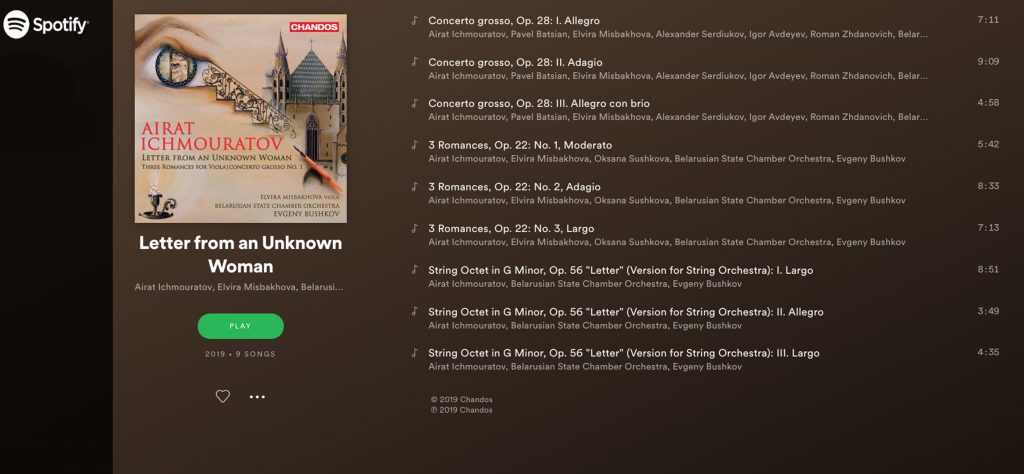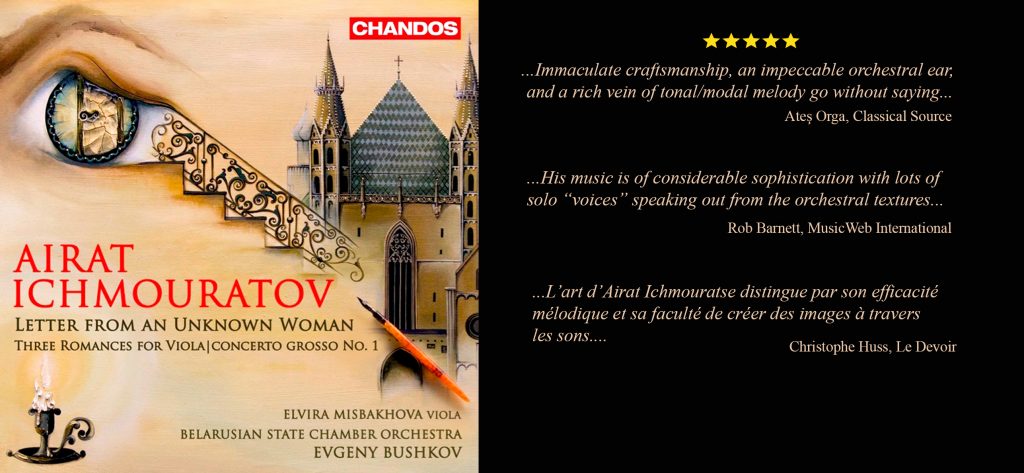“Letter from an Unknown Woman”
Octet in G minor, Op.56 / Tone poem for String Orchestra, Op 56A
n 1922 the Austrian novelist and man of letters Stefan Zweig (1881 – 1942) published his novella Brief einer Unbekannten. An unsigned twelve-page letter to a lifelong love is written to be read only after the death of its writer. The recipient, a renowned male author, is oblivious to the love of the female writer who as a child, living in the same building, spied on him through a peephole in the door, as he brought home fashionable women night after night. At eighteen, she willingly allows herself to be seduced by him. A few years later, still tracking him, she again sleeps with him – without his having recognised her from any past encounter. All the while she has been caring for his child, never telling him until the child dies and she finds herself unable to continue life. ‘I was inexperienced and naïve. I flung myself into my fate as if into an abyss’, she writes in the letter.
This story of unrequited love, of loss, pain, and obsession, inspired Airat Ichmouratov in 2017 to compose his seventeen-minute, single movement Octet in G minor, Op. 56, subtitled Letter from an Unknown Woman. The tragedy, passion, and intense emotion of the letter is played out in Ichmouratov’s music. The woman’s love is at first hushed and hesitant, pianissimo, in the downward descending then more hopefully rising viola theme heard over shimmering high strings at the beginning (Largo–Adagio). The ‘Love’ theme is developed and extended in generally optimistic music, surging to a fortissimo climax, and followed by the initial statement of a three-note figure outlining a rising seventh. This is the ‘Fate’ motif which has recurred in Ichmouratov’s music since the Viola Romances of 2009. After some of the tenderest, most loving music, the score again builds to a brief, radiant climax, punctuated by the rising seventh, and soon cut short by stabbing chords and a distant echo of the ‘Love’ theme, high on solo violin. A new section (Allegro) introduces unsettling, pianissimo triplets and an increasingly assertive bass line. This builds to a fff statement in the lower strings of the three-note figure of a rising seventh, twice repeated. The ‘Fate’ motif is now stated most clearly. It turns into pulsing chords, like a heartbeat, which die away and are followed by two further, low, hushed statements of the ‘Fate’ motif as the middle section ends, uneasily. This gives way, without a break, to the final section (Largo–Adagio), in which the music is bleak and melancholy, part funeral march, part distant memory of the ‘Love’ motif. The Octet fades away to a troubled whisper, haunted by the motif of the rising seventh.
© 2019 Keith Horner
© 2019 Keith Horner



